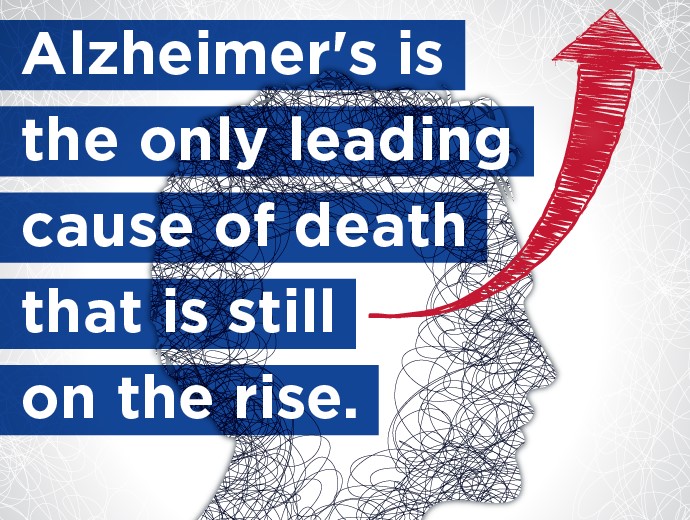As Alzheimer’s and brain awareness month comes to a close, I want to highlight two powerful stories that underscore trends that deserve greater attention: the growing impact of Alzheimer’s on communities of color and the growth of the millennial caregiver.
UsAgainstAlzheimer’s recently partnered with Genius of Caring, a web-based initiative that documents the growing impact of Alzheimer’s and dementia on families, to present the story of Kamaria Moore, 30, and her mother Mary, who was diagnosed with Alzheimer’s at the age of 58. Kamaria is a new homeowner, recently engaged, and solely responsible for her mother’s intensive care.
Kamaria’s experience highlights the growing impact of dementia on African Americans, a community three times more likely to get Alzheimer’s than whites. According to my colleague Stephanie Monroe, Executive Director of the AfricanAmericansAgainstAlzheimer’s Network, “If this disparity is ignored, inevitably it will lead to catastrophic consequences for African Americans, some of which have already begun to be experienced.” Kamaria’s story offers an intimate look at some of these consequences.

NPR’s Latino USA also released a story this month about a 26-year-old caregiver named Paola whose mother was diagnosed with early onset Alzheimer’s when she was 51. Paola was just 16 at the time yet she took on the role of chief advocate and healthcare navigator for her mother Miriam. Paola’s story highlights the many barriers that Latino families with Alzheimer’s and dementia face, from the difficulty accessing a timely and accurate diagnosis to the lack of bilingual support services available to working families. Paola is one of the 1.8 million Latino families providing intensive and high stress care for a loved one living with Alzheimer’s or dementia, often at the expense of their own health and wellbeing. In Paola’s case, the stress of caregiving lead to bouts of serious depression, a common thread connecting millions of caregivers.
Both Kamaria and Paola represent the growing number of millennials in a caregiving role for a loved one with Alzheimer’s and dementia. In fact, one in every four caregivers in the United States is part of the millennial generation (18-30 years of age). The average millennial caregiver is approximately 27, caring for an older female relative. Caregiving represents new challenges for millennials, who, like Kamaria and Paola, are navigating caregiving while still establishing themselves as adults.
In many ways, millennials are well positioned to take on caregiver roles as more than 40 percent live with their parents and as households become more international, particularly in communities of color. However, the economic and emotional hardship that Alzheimer’s and dementia poses to Latinos and African Americans has the potential to upend already vulnerable communities. Families can expect to spend between $41,000 and $56,000 annually in dementia-related costs. This doesn’t bode well for communities of color on the brink of financial hardship. According to the Institute on Assets and Social Policy, “95 percent of African-American and 87 percent of Latino middle class families do not have enough net assets to meet three-quarters of their essential living expenses for even three months if their source of income were to disappear.”
Despite these odds, millennials are rising to the caregiving challenge. While often depicted by the media to be self-absorbed and smartphone-addicted, many feel they had a choice in taking on a caregiving role and do so because of their close ties to their family. This is clearly a resilient and resourceful community, two traits necessary in the fight against Alzheimer’s.
We owe much to Paola and Kamaria and the many like them who sacrifice their own health and wellbeing to care for the millions among us living with (and dying from) Alzheimer’s. As Kamaria reminds us, “You figure stuff out when you’re presented with it, when you have no other choice but to figure stuff out.” We have no choice but to stop Alzheimer’s and it will take all of us to do it. Join the fight at www.LatinosAgainstAlzheimers.org.
The opinions expressed in this article are those of the author and do not necessarily reflect those of the Diverse Elders Coalition.

